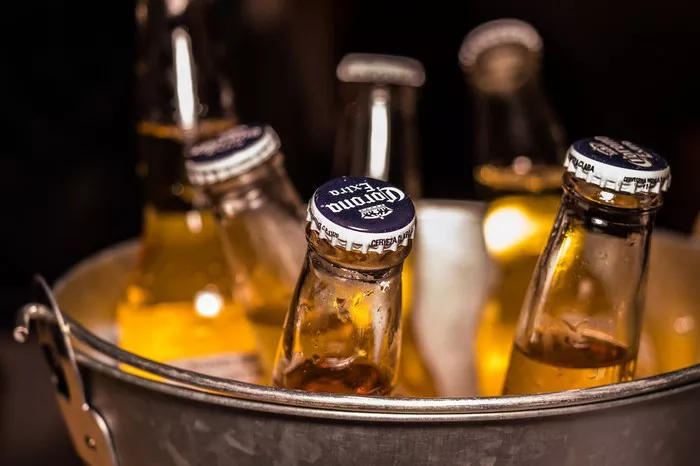Beer, often considered one of humanity’s oldest and most beloved beverages, has been consumed for millennia across various cultures and societies. But amidst the enjoyment and social significance, questions arise about its composition and effects. One fundamental query that often arises is, does beer have ethanol? Understanding the chemistry behind this question not only sheds light on beer’s properties but also provides insights into responsible consumption and brewing practices.
Ethanol in Beer: The Chemical Foundation
At the heart of beer’s intoxicating effects lies ethanol, a simple alcohol molecule with profound physiological consequences. When we ask, does beer have ethanol, what we’re really inquiring about is the presence of this particular chemical compound. Indeed, ethanol is the primary psychoactive component in beer, responsible for its intoxicating effects when consumed in sufficient quantities.
Ethanol is formed during the fermentation process, where yeast converts sugars into alcohol and carbon dioxide. In the case of beer, the sugars are derived from malted grains such as barley. As yeast metabolizes these sugars, ethanol is produced as a natural byproduct. Thus, to answer the question does beer have ethanol, one must acknowledge the pivotal role of fermentation in its production.
Quantifying Ethanol Content in Beer
The ethanol content in beer can vary depending on several factors, including the brewing process, ingredients used, and fermentation conditions. However, the ethanol concentration in most commercially available beers typically ranges from around 3% to 10% by volume. Craft beers and specialty brews may have higher alcohol content, sometimes exceeding 10% ABV (alcohol by volume).
Analyzing the ethanol content of beer involves various methods, including chromatography and spectroscopy. These techniques allow brewers and regulatory agencies to measure and monitor alcohol levels accurately. Thus, when discussing does beer have ethanol, it’s essential to recognize the precision with which modern analytical methods can quantify its presence.
The Impact of Ethanol on Beer Flavor and Aroma
Ethanol not only contributes to beer’s intoxicating effects but also influences its flavor and aroma profile. When we ponder does beer have ethanol, we’re also contemplating its sensory characteristics. Ethanol can impart a warming sensation and slight sweetness to beer, enhancing its overall taste experience.
Moreover, ethanol interacts with other compounds present in beer, such as hops and malt-derived flavors, to create a complex sensory profile. Higher ethanol concentrations can intensify certain flavors while masking others, leading to variations in taste perception among different beer styles. Thus, understanding the role of ethanol in flavor development is crucial when exploring the question does beer have ethanol.
Health Considerations and Ethanol Consumption
While moderate beer consumption can be enjoyed as part of a balanced lifestyle, excessive ethanol intake can have adverse health effects. Addressing the question does beer have ethanol prompts discussions about responsible drinking habits and potential health risks. Chronic alcohol consumption is associated with various health conditions, including liver disease, cardiovascular problems, and addiction.
It’s essential for individuals to be mindful of their ethanol intake and adhere to recommended guidelines for responsible alcohol consumption. Understanding the ethanol content of beer and its physiological effects can empower individuals to make informed decisions about their drinking habits. Therefore, when pondering does beer have ethanol, it’s crucial to consider its broader implications for health and well-being.
Regulatory Oversight and Ethanol Labeling
In many countries, regulatory agencies impose labeling requirements for alcoholic beverages, including beer. These regulations often mandate the disclosure of ethanol content on product labels, providing consumers with essential information about the strength of the beverage. When consumers inquire, does beer have ethanol, they can refer to these labels for accurate information about its alcohol content.
Additionally, regulatory agencies enforce standards for ethanol content in beer to ensure compliance with safety and quality guidelines. By monitoring ethanol levels and enforcing labeling requirements, authorities aim to protect consumers from misleading or deceptive practices within the beverage industry. Thus, regulatory oversight plays a vital role in addressing the question does beer have ethanol and promoting transparency in the marketplace.
Cultural Significance and Social Dynamics of Beer Consumption
Beyond its chemical composition and physiological effects, beer holds profound cultural significance and plays a central role in social gatherings and traditions worldwide.Exploring the question does beer have ethanol also invites reflection on the cultural and social dynamics of alcohol consumption.
From ancient rituals to modern celebrations, beer has been a staple beverage in human societies for millennia. Its presence at social events fosters camaraderie, facilitates conversation, and serves as a symbol of hospitality and conviviality. However, it’s essential to approach beer consumption with mindfulness and moderation, respecting individual preferences and boundaries.
Conclusion: Understanding Beer’s Ethanol Content
In conclusion, the question does beer have ethanol delves into the fundamental chemistry and cultural significance of this beloved beverage. Ethanol, the primary psychoactive component in beer, is formed during the fermentation process and contributes to its intoxicating effects, flavor profile, and sensory experience. While moderate beer consumption can be enjoyed responsibly as part of a balanced lifestyle, it’s essential to be mindful of ethanol intake and adhere to recommended guidelines for safe alcohol consumption. Regulatory oversight ensures transparency and accountability within the beverage industry, while cultural traditions enrich the social dynamics of beer consumption. By understanding beer’s ethanol content and its broader implications, individuals can make informed decisions about their drinking habits, fostering a culture of responsible consumption and appreciation for this ancient libation.


